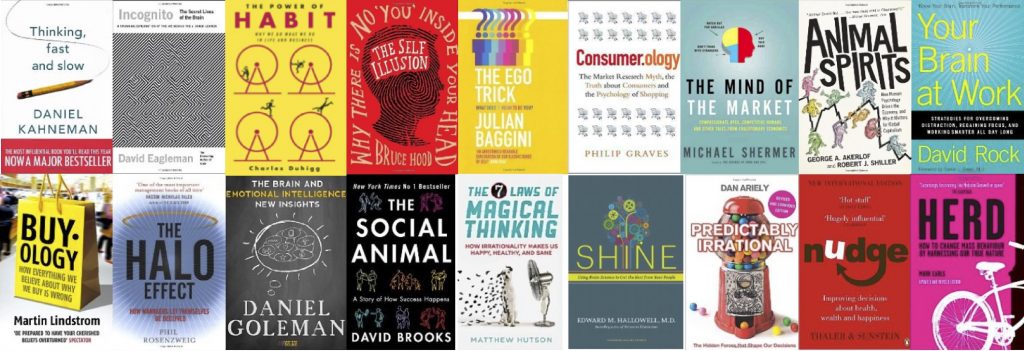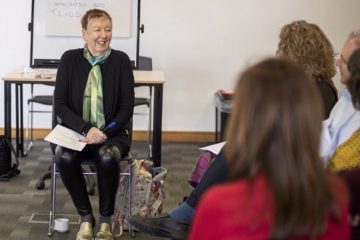What does neuropsychology offer coaching? A psycho-spiritual perspective…
20 November 2018
[ I ran a session on this topic at our Psychosynthesis Coaching Symposium on Wednesday 14th November and this is the full article I referred to then.]Introduction
Is neuroscience telling us anything new? How do we reconcile scientific and psycho-spiritual perspectives?
Most coaches will have come across neuroscience or neuropsychology in some form or other. Unless you have explored the field extensively for yourself, you may be wondering what there is to learn from this rich new seam of discovery and how you might draw upon it in your coaching practice.
I have approached this topic from the perspective of the psychosynthesis coach, a perspective which values inner inquiry and experiential observation as a valid knowledge path alongside behavioural observation and scientific discovery in the material world. We work with the inner lives of our coaching clients throughout all levels of consciousness and realms of the psyche (e.g. body, feelings, mind, spirit, etc) as well as their outer lives of action, behaviour and goals. From this perspective, I am asking, is neuroscience:
- telling us what we already know about the mind and human behaviour, by using an explanation of what is going on in the brain?
- telling us something significantly new or different that we should listen to and incorporate in our coaching? or
- telling us that we have got some things wrong and need to work in a new or different way?
The quick answer, is a bit of each of these. To answer this question more fully, I delved primarily into two sources; Paul Brown and Virginia Brown’s ‘Neuropsychology for coaching’ and Sarah McKay’s ‘Your brain health’ website, where she unpacks the ‘Seven principles of neuroscience every coach should know’. I also looked at ‘Neuroscience for Coaches’ by Amy Brann which appears to be doing a similar job to the ‘Neuropsychology for Coaching’, and Deb Elbaum’s blog post on ‘How Neuroscience Enhances Executive Coaching’, which covers similar ground to Sarah McKay’s.

I have also drawn from my own reading in the wider field of neuropsychology (e.g. David Eagleman, Thaler and Sunstein, David Rock) and experimental psychology (e.g. Daniel Kahneman, Daniel Goleman, David Brooks) over the last ten years of so (see more titles below). Whatever, we may think of neuropsychology, we certainly can’t ignore it and in this post I will tell you why.

Overview of neuropsychology for coaching
The neuroscientists and neuropsychologists who are speaking to the coaching profession appear to be doing a combination of three things.
- Educating us in the neuroscience of how the brain works, for example, explaining the mechanics of neurology and brain chemistry and how these determine our functioning and behaviour – which can be interesting but is not essential for a coach, it depends upon your appetite for the science.
- Telling us about neuroscientific discoveries in terms of insights into human nature and how human beings work, and the implications of these for coaching – which is both interesting and important. Some of this provides scientific evidence to support what we already know from other knowledge perspectives. And some offers new and valuable insights that we should be incorporating in the way we work. This is what I will focus on in this article.
- Developing a new approach to coaching based directly upon neuroscientific evidence and principles – so far the attempts I’ve seen to do this don’t work, in my view. I hope I remain open to new ideas about coaching, but will challenge those which are blind to underlying philosophical and epistemological biases and inconsistencies. One of the traps of the modern age is how easily science slips into scientism or materialistic reductionism (i.e. only the physical world is real), often without any awareness. To fully explain the issues I am referring to here would involve an academic detour that doesn’t fit this blog post, but to appreciate the nature of the problem I would refer you to Wilber’s integral model*.
To generalise the last point above, some neuroscientific proponents show little awareness of the wider knowledge context within which they are contributing their discoveries. Many are also poor at distinguishing between (i) the science (does a coach really need to know about how the amygdala works?), (ii) the insights from the science about human nature, our minds, behaviour, relationships, etc. and (iii) the implications of this for leadership and the coaching profession.
Of the sources I read, the best at avoiding these traps and recognising other perspectives was Sarah McKay’s blog post, in which she includes some of the science but focuses more on the insights and implications for coaches. Her seven point summary of Kandel, Cappas and colleagues thoughts on how neuroscience can be applied to coaching is:
- Both nature and nurture win
- Experience transforms the brain
- Memories are imperfect
- Emotion underlies memory formation
- Relationships are the foundation for change
- Imagining and doing are the same (to the brain)
- We don’t always know what our brain is ‘thinking’
These are expanded upon in her post, which is where I recommend you look next to deepen your understanding of this topic. Below I incorporate these and other insights into my own summary.
* For those not familiar with Wilber’s integral model, he shows us how there are four essential and irreducible perspectives that can be taken on any field or topic, which are created by making the distinction between interior and exterior reality at individual and collective levels. This gives us four types of knowledge; objectiveand subjective, inter-objectiveand inter-subjective. Ignoring or denying one or more of these perspectives causes all sorts of problems (e.g. performative contradictions) particularly when you step outside one discipline (e.g. neuroscience) and attempt to show how this knowledge applies in a broader context (e.g. the coaching profession).
Key insights from neuropsychology and the implications for coaches
Enough preamble, this is my high level synthesis of what I take from all the sources mentioned.
1. Human nature
We need to fundamentally recalibrate our understanding of human nature – for example, recognising the primacy of emotions over rationality, the extent to which we are social animals and relational beings and less individually autonomous than we think.
Brown and Brown (2012) explain how emotions are triggered through chemicals and neural pathways much more quickly than conscious thought, so that our reactions, choices and decisions are largely emotionally driven and post-rationalised.
Experimental psychology shows how systemic cognitive biases make us poor decision makers (e.g. cognitive dissonance, the halo effect, I-hindsight-bias, risk-aversion, over-optimism) as well as how easily influenced we are by others without realising it (following fashions, herd behaviour). We are much closer to the animal world and more influenced by our biological and genetic inheritance than we admit.
What is worse, we are for the most part, unconsciously blind to our human nature and will continue in a state of self-delusion even when the wider reality has been revealed. This capacity for self-delusion is also pervasive throughout our organisations and societies. Most typically, organisations believe they make rational rather than emotional decisions more than they do. Societies also tend to assume people make rational decisions based upon the information that’s available. Recent global events are shaking us out of this self-delusion. The discoveries of neuropsychology potentially offer a antidote to our tendency for self-delusion, but need to be administered skilfully if they are to work.
Implications for coaching?
Seek to see the individual and the systems that they are part of in relationship and work to support the coachee become aware of the human systems they are influenced by.
Hold lightly and be curious about the rationalisations and justifications our clients tell us, helping them to reflect upon their own cognitive biases and emotional undercurrents and be curious about rationality bias and other collective self-delusions that exist within their organisational system.
Hold a holistic context for your coaching – e.g. awareness of the whole person including soma, feelings, mind and spirit, all levels of consciousness and unconsciousness, engaging with past, present and future.
There is a wider message about human nature to hold in our awareness, which is well summarised by Michael Shermer (2008): “Most people misjudge what would make them happy. Happiness stems from love, meaningful work, community participation and spiritual practice. To be happy, engage in these things and support a society that allows others to do the same”(Source: Getabstract.com).
Anything new to the psychospiritual perspective?
The core models of psychosynthesis, e.g. Assagioli’s models of the psyche and the psychological functions, already provide the theoretical foundations for working with an expanded view of human nature – the new discoveries give us material to work with in shifting consciousness within today’s organisational and societal context.
Assagioli says: “…the human tendency to find apparently good justifications for actions that are not good; justifications to ourselves and justifications to others. This tendency could be compared to the pleading of an inner attorney who defends the cause of the more intense urges operating in the unconscious.” And also “the knowledge of the existence of these ‘lower’ elements in ourselves need neither surprise nor depress us; they exist in all human beings!”
2. The mind
Alongside this, at the individual level, our understanding of how the mind works is developing rapidly based upon findings of both brain science and experimental psychology. The headline is that the unconscious, automatic, emotionally driven and habit forming part of our mind is much more pervasive and in control than we realise. The conscious, deliberative, slow and energy consuming part likes to think it’s in charge but for the most part it’s not.
Daniel Kahneman describes these two cognitive systems as the fast ‘System 1’ and slow ‘System 2’. Daniel Goleman also recognises these two systems that are not always in sync – the low road of immediate emotional response and the high road of rational thought. Sarah McKay summarises the neuroscience as showing that “unconscious processes exert great influence on our thoughts, feelings, and actions”, whilst Deb Elbaum emphasises the “struggle between the amygdala and the prefrontal cortex… also known as the amygdala hijack” – basically saying that leaders can easily get hijacked by hasty emotional reactions and need to find a way to take a step back and reflect before acting.
Implications for coaching?
Working with an awareness of the ‘parts’ and supporting the coachee to develop this awareness is essential for coaching. The most basic distinction between the conscious self on one hand (e.g. System 2), and the unconscious, automatic mind on the other (System 1) is an important starting point. Beyond that, we can look to build the coachees awareness of a multitude of parts within their consciousness and to see the tensions or conflicts that can arise between them. From a psychospiritual perspective, we are also seeking to develop the capacity to disidentify from these parts (although paradoxically one must recognise and identify first in order to disidentify) and build our sense of self – the place of awareness from which we can observe our identifications with different parts.
McKay also tells us how “the brain can process nonverbal and unconscious information, and information processed unconsciously can still influence therapeutic and other relationships. It’s possible to react to unconscious perceptions without consciously understanding the reaction”. This validates any holistic approaches to coaching in that it endorses that everything going on in the coaching space, whether conscious or unconscious, is relevant and has transformative potential.
Anything new to the psychospiritual perspective?
I’d like to think that we are already working from the principles underlying the truth being discovered in these new ways. However, this new language of the unconscious mind (e.g. Kahneman’s Systems 1 and 2) and the evidence base about how it works, can help bring the mainstream with us. Psychosynthesis offers the systemic model of subpersonalities as a way of understanding the nature and relationship of different parts of our personality.
Assagioli said: “There are conscious motivations and unconscious motivations; or rather one might say more accurately that there is almost always a combination of the two, in very variable proportions!” And also: “We are dominated by everything with which our self becomes identified. We can dominate and control everything from which we disidentify ourselves”.
3. Behavioural change
There is both bad news and good news coming out of this field concerning change. On one hand, “the brain hates change” (Brown and Brown) and becomes grooved in habitual responses that require conscious will and repeated practice to regroove.
On the other hand, the concept of neuroplasticity (my one concession to the jargon!) explains how the brain is always capable of relearning and developing new behaviours. McKay elaborates the principle: “the areas of our brain associated with emotions and memories… are not hard-wired, they are ‘plastic’. Circuits in our brain change in response to experiences, not just during development…”
Our brains have a drive towards normalisation, quickly adapting to any new circumstances with new routines that can be consigned to the automatic, unconscious part of brain functioning. In the Power of Habit (2012), Charles Duhigg explains how ‘habits are actions people first decide to do deliberately and keep doing subconsciously. The “habit loop” has three stages: a “cue” propels a person into a “routine” to reach the goal of a “reward.” Understanding how your habits fit these habit loop stages can help you change them” (Source: Getabstract.com).
Implications for coaching?
Neuroscience endorses that all relationships, including coaching or therapeutic relationship, can be important in enabling positive change.
Neuroplasticity confirms that deep change, throughout our lives, is more possible than we thought. For example, the long held assertion that psychological type (e.g. using MBTI) is relatively fixed through our lives, has been shown to be inaccurate.
Anything new to the psychospiritual perspective?
Neuropsychology brings something new in terms of understanding how change takes place and what is needed to bring about successful change. This can be combined with the psychosynthesis approach to transforming mindsets (see here) or other more cognitive behavioural approaches such as Kegan’s ‘immunity to change’ (2010).
Amongst other things, Psychosynthesis is a psychology of Will. The importance of our will and the role of coaching in developing, finding and activating free will is only increased by the evidence from neuro- and experimental psychology. Without will, we are at risk of being lost in a sea of unconscious powerful processes and forces at play at individual, relational and collective levels that are only exacerbated by ever increasing complexity in modern life. Neuropsychology, as far as I can tell, has nothing useful to say about the will (maybe, like the self, it can’t find a place in the brain in which it resides) and in this respect psychosynthesis is still fairly unique as a psychology that helps us to support coachees find and develop their free will (not just strong, skilful or good will).
Assagioli says about the will: “the discovery of the will in oneself and even more the realisation that the self and will are intimately connected, may come as a real revelation…”
4. Memory and narrative
Our memory is basically faulty! Neuroscience show how memories, emotions and feelings are closely interconnected neural processes in the brain. Memories are recreated each time we recall them, and as we do so we weave in new narratives, alongside new emotions and feelings. “Autobiographical memories that tell the story of our lives are always undergoing revision precisely because our sense of self is too”, as McKay puts it.
Kahneman tells us how “people prefer to make simple stories out of complex reality. They seek causes in random events, consider rare occurrences likely and overweight the import of their experiences” (Source: Getabstract.com). He also makes an important distinction between what he call our two selves – the experiencing self, which lives in the present and our remembering self, which evaluates the past and decides about our future.
We are also highly selective in our remembering – and yet don’t realise it. Bruce Hood (2012), citing Daniel Kahneman explains that “we have about 600,000 experiencing moments a month, each of which lasts about 2 or 3 seconds, but most are lost. That is why our memory is always fragmented, and why we often believe so strongly that our recollection is correct when it is not” (Source: Amazon.com review).
Implications for coaching?
Gervase Bushe offers some useful perspectives on this topic. In Clear Leadership (2010) he speak to the human inclination to make up stories to fill gaps in our understanding and how we tell these stories to gain agreement for our ‘positions’. He shows how common and problematic our partial perceptions and faulty memories can be and how this contributes to interpersonal mush within organisations. Much coaching involves untangling this interpersonal mush for our coachees. Bushe suggest ways in which we can communicate our experience more effectively by more explicitly acknowledging our observations, feelings, thoughts and wants.
The importance of stories or narratives in human life is becoming clearer – they are central to our sense making and understanding of ourselves. They are therefore key to the coaching process in more than one way. Psychosynthesis has always emphasised the importance of stories and we use the metaphor of the journey as an important device within our story telling.
Anything new to the psychospiritual perspective?
I would suggest that the extent of the unreliability and selectivity of our memory is new knowledge. Knowing how our memory and emotion functions are closely interconnected in the brain, helps our understanding of how we constantly reshape our memories. Of all the insights from neuroscience, I find those concerning memory to be of greatest potential significance.
As human beings, we are always in the process of developing our own mythology, consciously or unconsciously. By this I mean we are finding meaning and significance in our past and looking for purpose and self-expression in our future. There is an extraordinary and even mystical dimension to this, which we can only touch upon here (note to self to develop this further). We are effectively changing the past in the way we do this, as well as creating the future. That is not to say that we can fictionalise or fantasise the past to our liking, just as fantasising about the future is only useful when we also engage our will. From a psychospiritual perspective, we seek to weave our mythology in ways which are connected with the higher Self, that bring about healing of the past, transformation of the present and inspiration for the future. Importantly, the coach can and should support this process for their clients.
5. Imagination and creativity
Imagination was one of two psychological functions that Roberto Assagioli explicitly added (the other was impulse or desire) to Jung’s four primary psychic functions: sensation, feeling, thought and intuition. The capacity for imagination and creativity has tended to be side-lined by the rational-behavioural bias within our organisations, or at least consigned to specific roles and activities. Neuropsychology is helping to bring it back centre stage and it should play a vital role in leadership coaching. Elbaum speaks about the need for ‘whole brain wisdom’ by engaging the right hemisphere of the brain (e.g. by drawing upon metaphor and imagery) alongside the analytical left brain, in a process of synthesis that many leaders are not familiar with.
As touched upon with the previous theme of memory, our imagination works in all temporal directions. As Sarah McKay puts it: “consciously or not, we use imagination to reinvent our past, and with it, our present and future.” She adds “mental imagery or visualisation not only activates the same brain regions as the actual behaviour but also can speed up the learning of a new skill. Envisioning a different life may as successfully invoke change as the actual experience.”
Brown and Brown support this view of coaching as including all temporal domains: “any client brings to any coaching session… him- or her- Self. The whole of the person is always present in the room. This includes their past, present and future”.
Implications for coaching?
The value and power of visualisation, imagery and even guided mediation in coaching has been validated by neuropsychology. Psychosynthesis explains the psycho-spiritual principles underlying the efficacy of these tools as well as bringing an expanding repertoire of techniques and ideas for coaching practice.
Anything new to the psychospiritual perspective?
McKay’s quote above resonates with Assagioli’s words from more than forty years ago “images or mental pictures and ideas tend to produce the physical conditions and the external acts that correspond to them”. Assagioli’s psychological laws then take this to a much more sophisticated level, see Chapter 5 in The Act of Will (1974). The development and engagement of imagination has always been core to the practice of psychosynthesis and the neuroscientific validation of why it works is very welcome.
Summary
In this piece I have attempted to synthesise my understanding of key insights from both neuro- and experimental psychology, and suggest some implications for coaching. In doing so, I have sought to minimise the scientific jargon and use the language of the mind rather than the brain. At the same time, I have shown how these discoveries can combine with and enhance a psychospiritual approach to coaching. I have illustrated, with quotes from Roberto Assagioli’s work (he described himself as a scientist of the spirit), the extent to which there isn’t necessarily much new wisdom here for those working from a psychospiritual perspective. At the same time, it does add something important by helping build a richer and more detailed picture of what is going on and providing valuable material which the coach can use in today’s organisational and leadership contexts.
Neuro- and experimental psychology offers fascinating insights and new awareness about human nature, our minds and behaviour. But it cannot give us a coaching methodology in its own right, because as coaches we are working with people not brains. My argument is that in order to work with the implications of these new sciences, which primarily concern what is going on within the human being (our minds, being, consciousness, etc), you need a methodology and indeed a core psychology that works with the inner subjective dimension, such as psychosynthesis.
My wider argument is that any truly holistic approach to coaching leaders and seeking to bring about beneficial change in organisations and society, needs to be integral in the sense that it recognises all four of Wilber’s essential perspectives; objective and subjective, inter-subjective and inter-objective. In my next piece on this theme, I will show how by combining the neuropsychological objective perspective, the psycho-spiritual subjective perspective, the developmental inter-subjective perspective and the systemic inter-objective perspective, we can develop a powerful new approach, not just for dealing with the complexities of leadership coaching but for tackling the really serious emergent societal leadership issues of today. I call this evolutionary catch-up.
References
Assagioli, Roberto (1965), ‘Psychosynthesis’
Assagioli, Roberto (1974), ‘The Act of Will’, London: Aquarian Press
Brann, Amy (2017) ‘Neuroscience for Coaches’
Brooks, David (2011) ‘The Social Animal’
Brown, Paul and Brown, Virginia (2012) ‘Neuropsychology for coaching’
Bushe, Gervase (2010), ‘Clear Leadership’
Duhigg, Charles (2013), ‘The Power of Habit’
Earls, Mark (2009), ‘Herd’
Elbaum, Deb (2018): Cornerstone International Network: ‘How Neuroscience Enhances Executive Coaching’
Getabstract: www.getabstract.com
Goleman, Daniel (1996), ‘Emotional Intelligence’.
Goleman, Daniel, (2007) ‘Social Intelligence’
Hood, Bruce (2012), ‘The self-Illusion: why there is no you inside your head’
Kahneman, Daniel (2012), ‘Thinking Fast and Slow’
Kegan, Robert and Lahey, Lisa (2009), ‘Immunity to Change’
McKay, Sarah (2018), ‘Your brain health: Seven principles of neuroscience every coach should know’.
Rock, David, (2009), ‘Your Brain at Work’
Rosenzweig (2010), ‘The Halo Effect’
Shermer, Michael (2008), ‘The Mind of the Market’
Thaler, Richard H. Sunstein, Cass, (2009), ‘Nudge’
Wilber, K. (2000), ‘A Theory of Everything’



